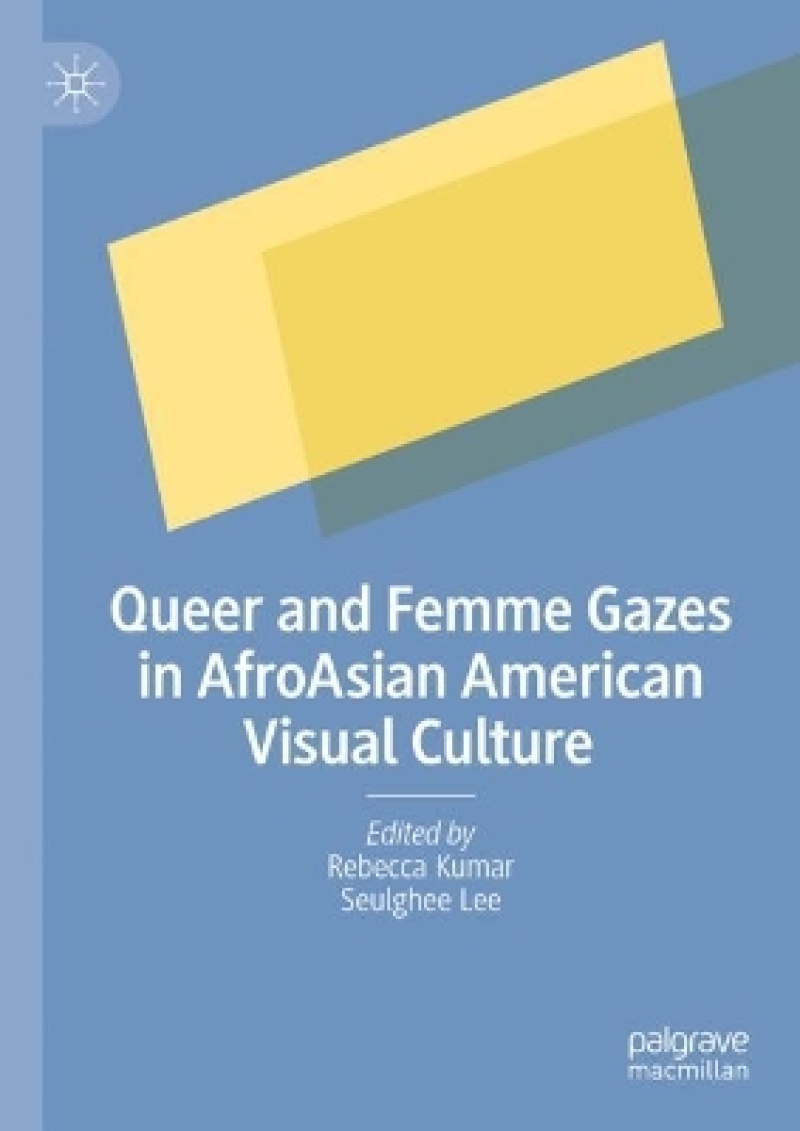Queer and Femme Gazes in AfroAsian American Visual Culture is a scholarly collection that takes comparative Black-Asian representations in televisual culture from queer and femme perspectives. AfroAsian representations on screen—as well as their attendant critical gazes—have historically emphasized cross-racial masculinities at the expense of queer and/or femme visions. The prevalence of these previous televisual artefacts—and the ways they have been watched—has contributed directly to white heteronormative legacies within film and visual studies. The collection intervenes by excavating the intimacies and political possibilities within AfroAsian femme, queer, and transgender life. The authors offer alternative ways of looking at racial representation in their attendance to developments in AfroAsian visual culture: music videos, video games, genre serials, and independent and short films.
Queer and Femme Gazes in AfroAsian American Visual Culture is a scholarly collection that takes comparative Black-Asian representations in televisual culture from queer and femme perspectives.
1. Introduction: AfroAsian Social Insurgency in the Visual Field.- 2. Queering Dueling Minstrelsies, or All the Things You Could Be Now If Charlie Chan and Stepin Fetchit Had a Baby.- 3. Racialized Masculinities: The ‘Flawed’ AfroAsian Brothers in the Rush Hour Series.- 4. Reorienting Queer AfroAsias in Hong Khaou’s Monsoon.- 5. FUCK THIS CHARACTER I’M JUST GOING TO GET STRONGER:’ SonicFox’s Hypermediation of Blackness and Queerness as Radical Archival Embodiment.- 6. Black Girlhood and Anti-Asian Misandry in Justin Chon’s Gook.- 7. Queering Archives of Indenture and the Present: Refusing Cultural Kinship in Michelle Mohabeer’s Queer Coolietudes and Shanti Mootoo’s Cereus Blooms at Night.- 8. Whitewashing the AfroAsian Vampire: Filipino Erasure and Anti-Blackness in The Originals.- 9. Saweetie’s Pretty Bitch Music, Femme Fugitivity, and the Blasian Bay Area.- 10. Trading Eyes: Brown Looks in Beyoncé’s ‘Brown Skin Girl.
Queer and Femme Gazes in AfroAsian American Visual Culture is a scholarly collection that takes comparative Black-Asian representations in televisual culture from queer and femme perspectives. AfroAsian representations on screen—as well as their attendant critical gazes—have historically emphasized cross-racial masculinities at the expense of queer and/or femme visions. The prevalence of these previous televisual artefacts—and the ways they have been watched—has contributed directly to white heteronormative legacies within film and visual studies. The collection intervenes by excavating the intimacies and political possibilities within AfroAsian femme, queer, and transgender life. The authors offer alternative ways of looking at racial representation in their attendance to developments in AfroAsian visual culture: music videos, video games, genre serials, and independent and short films.
Rebecca Kumar is Assistant Professor of English at Spelman College, USA. Her published work appears in Thirty Years After: New Essays on Vietnam War Literature, Film, and Art; Early Modern Diaspora Studies; liquid blackness; The Oxford Handbook on Shakespeare and Race; Scholar & Feminist Online; Refractory: A Journal of Entertainment Media; and Queer Studies in Media and Popular Culture.
Seulghee Lee is Assistant Professor of African American Studies and English at the University of South Carolina, USA. He is the author of Other Lovings: An AfroAsian American Theory of Life (2024).
Produktdetaljer
Biografisk notat
Rebecca Kumar is Assistant Professor of English at Spelman College, USA. Her published work appears in Thirty Years After: New Essays on Vietnam War Literature, Film, and Art; Early Modern Diaspora Studies; liquid blackness; The Oxford Handbook on Shakespeare and Race; Scholar & Feminist Online; Refractory: A Journal of Entertainment Media; and Queer Studies in Media and Popular Culture.
Seulghee Lee is Assistant Professor of African American Studies and English at the University of South Carolina, USA. He is the author of Other Lovings: An AfroAsian American Theory of Life (2024).
